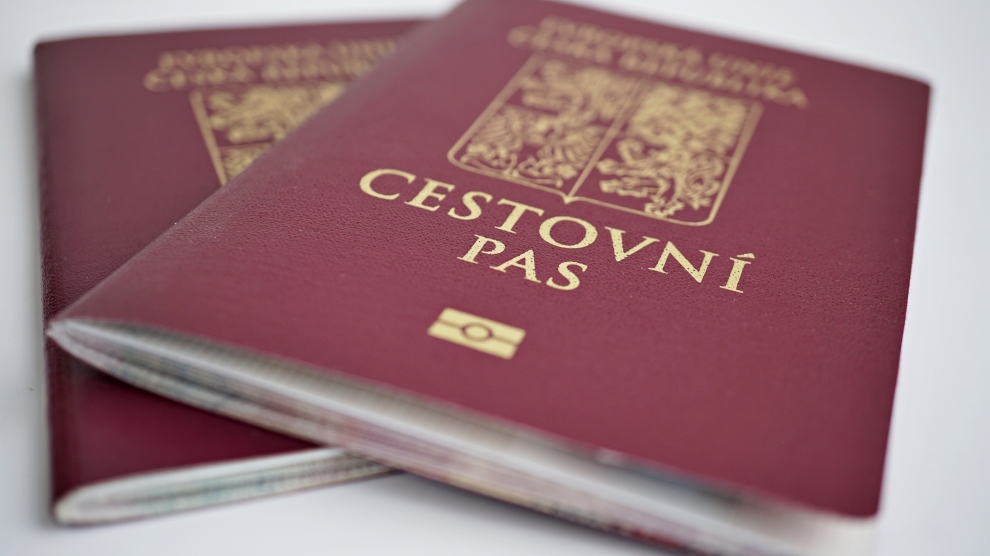The Czech Republic continues to dominate emerging Europe when it comes to offering visa-free access to third countries.
According to the latest edition of the Henley Passport Index, the country was ranked ninth globally, and now offers its citizens a passport as powerful as Australia, Canada, Malta and New Zealand, offering visa-free access to 183 destinations worldwide.
Slovakia, Lithuania and Hungary offer the second most powerful passports in the region, ranked 10th globally, offering access to 181 countries. They are followed by Slovenia and Latvia, which have visa-free arrangements with 180 countries and – together with Iceland – are ranked 11th globally.
Estonia (ranked 12th globally with 179 destinations), Poland (14th with 176 destinations), Romania (17th/172) and Bulgaria (18th/171) also made it to emerging Europe’s top 10. In 2019, Poland finally joined the US visa-waiver programme, allowing its citizens to travel visa-free to the country.
The regional ranking continues with Croatia (20th/169), Serbia (39th/133), Ukraine (43rd/128), North Macedonia (47th/123), Moldova (49th/120) and Bosnia and Herzegovina (52nd/117), Georgia (53rd/116), followed by Albania (54th/114), Belarus (68th/75), Azerbaijan (76th/67) and Armenia (81st/62).
Scoring lower than Iran, Eritrea, Congo or Bangladesh, Kosovo remains way behind the other countries in the region. Ranked 99th globally, Europe’s youngest country offers visa-free travel to just 40 destinations, one lower than in 2019.
Despite continuing opposition from the Dutch and French government, lawmakers in the European Parliament last year reiterated their support for visa liberalisation with Kosovo.
The previous European Commission, led by Jean-Claude Juncker, also said that Kosovo met all the requirements for visa-free travel to the European bloc.
Albania, Ukraine and Bosnia and Herzegovina emerged as the countries in the region making the biggest improvements in the ranking over the past 10 years, climbing up 24, 22 and 22 spots, respectively.
The authors of the 2020 Henley Passport Index and Global Mobility Report found that travel freedom stood in strong correlation with other kinds of liberties, ranging from economic to political, as well as individual and human freedoms.
“There’s a distinct correlation between visa freedom and investment freedom (…). Similarly to trade freedom, countries that rank highly in investment freedom generally have stronger passports,” say Uğur Altundal and Ömer Zarpli, political researchers from the Syracuse University and the University of Pittsburgh.
Going into 2020, countries with citizenship by investment programmes, including Montenegro, continue to consolidate their positions in the ranking: the is now ranked 46th with a visa-free/visa-on-arrival score of 124.
While Belarus, for years, has been ranked lower than many of its emerging European neighbours, the country is taking considerable steps towards securing travel freedom for its citizens. The ranking was published just as Belarus and the European Union signed a long-awaited agreement on visa facilitation, that includes the mutual simplification of visa procedures, bilateral cooperation in readmission and the reduction of visa fees to 35 euros.
“[The agreement] will improve the mobility of our citizens in a well-managed and secure environment and help build closer links between the European Union and Belarus,” said European Commissioner for Home Affairs Ylva Johansson.
Under the EU’s enlargement objectives in the Western Balkans and its so-called Eastern Partnership with six former USSR states, the EU has concluded a number of agreements on visa liberalisation with countries including Albania, Bosnia and Herzegovina, Georgia, Moldova, Montenegro, North Macedonia, Serbia and Ukraine.
Less intensively, Armenian and EU officials have also been working on abolishing visa requirements since the two sides agreed on a Comprehensive and Enhanced Partnership Agreement (CEPA) in 2017.
Although Croatia is among the top performers in the global ranking, the country, similarly to Romania and Bulgaria, is yet to join the EU’s Schengen Zone. It will nevertheless have an opportunity to make its case during its first presidency of the Council of the EU, which began on January 1.






I think one of the key factors in achieving development in tourism is by adapting a relaxed visa policy and by waiving the visa requirements for the visitor visa. For most countries it has proven efficacy but the main concern should always be for the country to strengthen the immigration law and process to prevent high risk individual from entering the country.
[…] the bloc, such freedom of movement has yet to happen. As a result, a Kosovo passport is currently one of the least-powerful in the world: holders can travel to just 40 countries visa free, fewer than […]